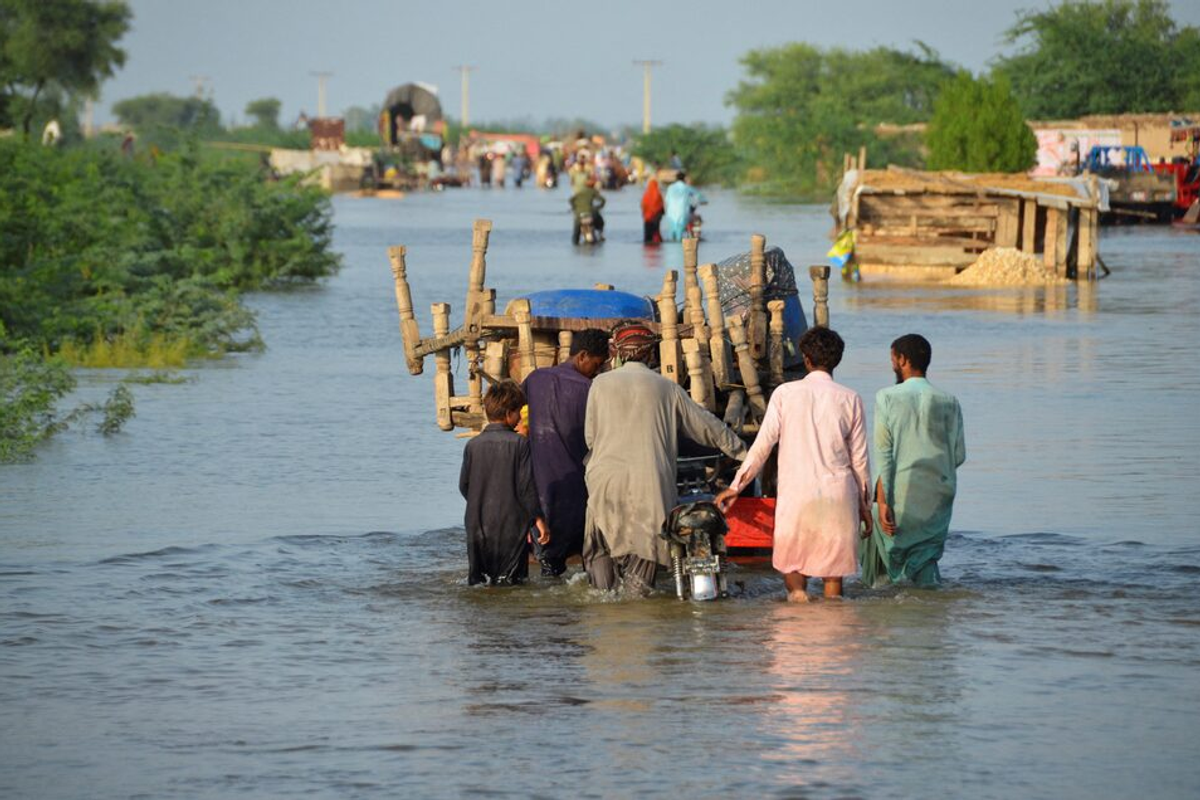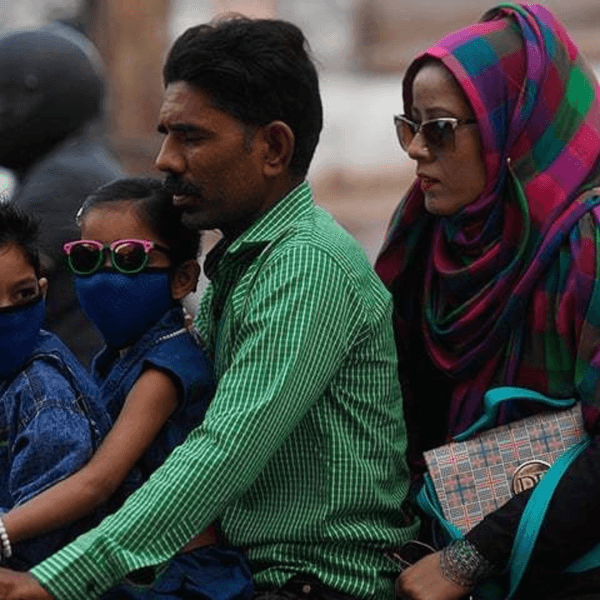Flood recovery in Pakistan slows as global aid pledges fall short
PM’s flood relief fund receives $2.1 million in two years, with major donor pledges still largely undelivered

Shahzad Raza
Correspondent
Shahzad; a journalist with 12+ years of experience, working in Multi Media. Worked in Field, covered Big Legal Constitutional and Political Events in Pakistan since 2012. Graduate of Islamic University Islamabad.

Men walk along a flooded road with their belongings, following rains and floods during the monsoon season in Sohbatpur, Pakistan August 28, 2022.
Reuters
More than two years after historic floods swept across Pakistan, the federal government has managed to collect just $2.1 million (PKR 588 million) under the Prime Minister’s Flood Relief Fund, according to official documents reviewed by Nukta.
Despite initial appeals to citizens, philanthropists, and overseas Pakistanis, the donations have remained dismally low—underscoring a lack of public confidence in government-managed aid efforts.
By comparison, charitable groups like Edhi Foundation, Saylani Welfare, and Al-Khidmat Foundation often attract higher direct contributions during crises.
The fund was launched in August 2022 by Prime Minister Shehbaz Sharif to support relief and rehabilitation following catastrophic monsoon rains that triggered floods across 116 districts, primarily in Sindh, Balochistan, southern Punjab, and Khyber Pakhtunkhwa.
The 2022 floods were among the worst in Pakistan’s history. They killed more than 1,000 people, wiped out 2 million acres of crops, and left nearly half a million homes either damaged or completely destroyed.
Over 800,000 livestock also perished, deepening the economic blow to rural communities.
Global pledges, slow delivery
To rally international support, Pakistan hosted the International Conference on Climate Resilient Pakistan on Jan. 9, 2023, in Geneva. The event saw 21 donors—including 17 countries and four major international financial institutions (IFIs)—pledge a total of $10.99 billion in aid.
Countries including the United States, United Kingdom, Saudi Arabia, China, France, Germany, Japan, and Australia made commitments, alongside IFIs such as the World Bank, Asian Development Bank (ADB), Islamic Development Bank (IsDB), and Asian Infrastructure Investment Bank (AIIB).
However, two years later, delivery of those funds has been uneven and slow.
As of December 2024, Pakistan had received only $2.25 billion in project-based or program-based funding—barely one-third of the $6.38 billion committed under that category.
In terms of oil financing, the country received $1.52 billion against a pledged $4.6 billion. That brings the total disbursed so far to about $3.77 billion—just over a third of what was pledged at Geneva.







Comments
See what people are discussing